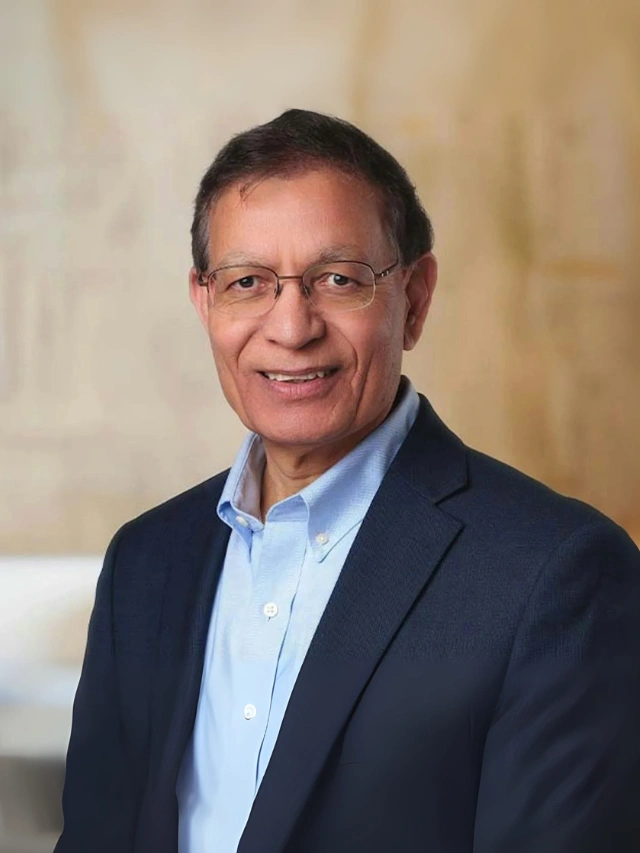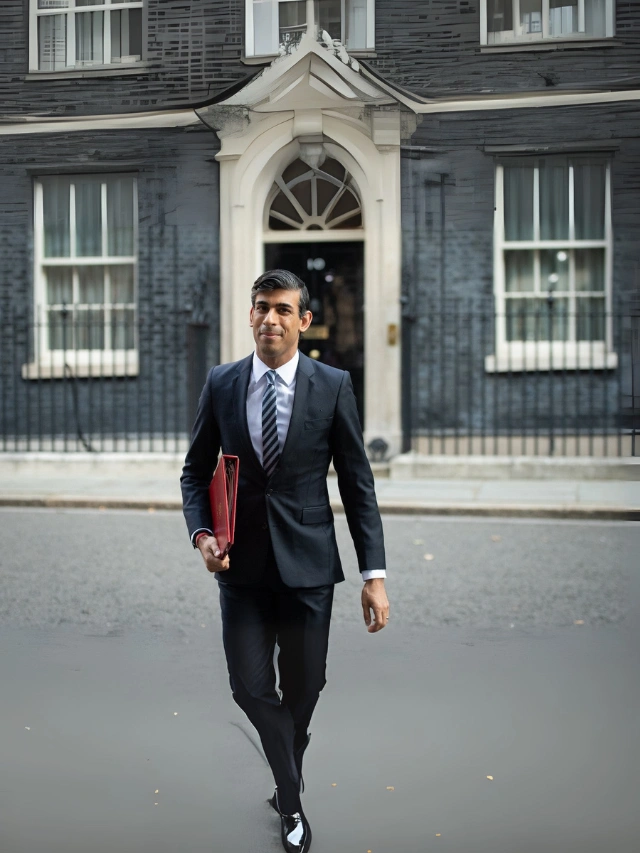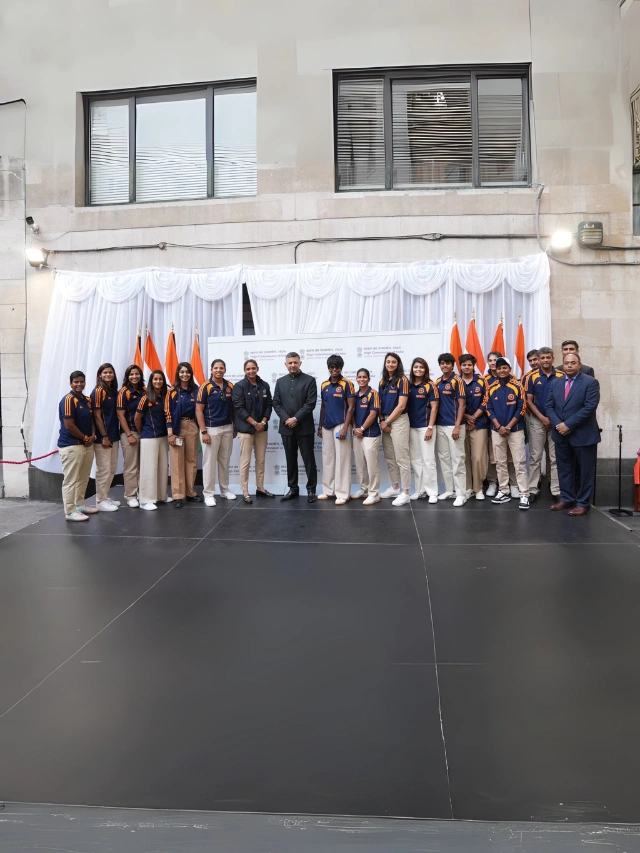BR Ambedkar
BR Ambedkar rose from being labeled an “untouchable” to become the chief architect of India’s constitution – one of the most remarkable stories in modern history. Born on April 14, 1891, he was the 14th child in a Mahar caste family. The rigid social hierarchy of his time branded his community as “untouchables,” which led to severe discrimination throughout his childhood.
Early Struggles and Achievements BR Ambedkar’s determination helped him overcome these barriers. He broke new ground by becoming one of the first Dalit students at Elphinstone College. His academic journey took him to Columbia University, where he earned his Ph.D. in 1916. He later added a D.Sc. from the London School of Economics. These impressive academic achievements laid the foundation for his greater contributions to society.
CEO’s | Actors | Politicians | Sports Stars
Constitutional Legacy The newly independent India appointed Dr. BR Ambedkar as its first Law Minister in 1947. He led the drafting committee for the Indian Constitution, which took effect on January 26, 1950. This revolutionary document abolished untouchability and established the principles of justice, liberty, equality, and fraternity. His powerful statement “I was born a Hindu, but I will not die a Hindu” led to his conversion to Buddhism in 1956, along with nearly 500,000 followers.
Lasting Impact India honored Ambedkar with its highest civilian award, the Bharat Ratna, in 1990. His influence reaches well beyond his lifetime. People across India celebrate his birth anniversary as Ambedkar Jayanti. His writings still fuel social reform movements throughout the country. This piece tells the story of how Bhimrao Ambedkar overcame discrimination and reshaped a nation’s destiny.

Born into Discrimination: The Early Life of Bhimrao Ramji Ambedkar
Family background and caste identity
Birth and Family Origins: Bhimrao Ramji Ambedkar was born on April 14, 1891, in the military cantonment town of Mhow (now officially known as Dr. Ambedkar Nagar) in present-day Madhya Pradesh. His parents, Ramji Maloji Sakpal and Bhimabai Sakpal, welcomed him as their fourteenth and last child. His father’s position as Subedar in the British Indian Army gave the family a slightly better living standard than others in their community.
Caste Classification: The family’s military connection couldn’t shield them from the harsh realities of the caste system. The Ambedkars were part of the Mahar caste, labeled as “untouchable” in that era’s rigid social hierarchy. This label brought severe social and economic discrimination from birth. Their Marathi roots traced back to Ambadawe, a town in Maharashtra’s Ratnagiri district.
Early Childhood: Life changed dramatically for young Bhimrao. His father left military service when he was just two years old. More hardship followed when his mother died during his sixth year, leaving his aunt to raise him. These early losses marked the beginning of his challenging life journey.
Experiences of untouchability in school
School Segregation: Young Ambedkar’s school years in Satara and Bombay (now Mumbai) exposed him to untouchability’s harsh reality. Despite attending school, he and other untouchable children sat separately and received little teacher attention. The discrimination went further – he sat outside on a gunny sack instead of in the classroom with other students. He carried this sack home each evening and brought it back daily.
Water Humiliation: The young scholar faced deeply dehumanizing experiences around drinking water. His untouchable status meant he couldn’t touch water vessels. He relied on higher-caste individuals to pour water from above when thirsty. The school peon usually did this task, leading Ambedkar to later describe it as “No peon, No Water”.
Academic Excellence Despite Odds: Ambedkar’s brilliance shone through these degrading conditions. His family moved to Bombay in 1897, where he became Elphinstone High School’s only untouchable student. His community celebrated his English fourth standard examination success as reaching “great heights” – proof of the educational gaps between castes then.
Support from progressive mentors
Scholarship Opportunity: Sayaji Rao III, the Gayakwad ruler of Baroda, gave Ambedkar a monthly scholarship of twenty-five rupees. This financial support helped him study at Elphinstone College in 1908.
Educational Encouragement: Some forward-thinking teachers saw his exceptional mind and backed his educational goals. Their support balanced out the discrimination and strengthened his resolve to overcome society’s barriers.
Introduction to Buddhist Thought: A key moment came during a public ceremony celebrating his academic success. Dada Keluskar, an author and family friend, gave him a biography of the Buddha. This book sparked his interest in Buddhist philosophy and shaped his later spiritual path and social reform work.
Education as a Weapon: Ambedkar’s Academic Journey
Studies at Elphinstone and Columbia University
Early College Education: B.R. Ambedkar’s higher education started at Elphinstone College in Bombay, which was linked to the University of Bombay. He excelled in his intermediate examination and earned a scholarship from Baroda’s Maharaja in 1912. This rare chance opened new doors for someone with his background. His outstanding academic record drew attention since he was one of the first Dalit community members to receive college education.
American Experience: The year 1913 saw him head to Columbia University in the United States to further his studies. This experience changed the course of his intellectual growth. He learned from some of America’s brightest minds including John Dewey, James Shotwell, Edwin Seligman, and James Harvey Robinson. His achievements came quickly – an MA in 1915 and a PhD in 1916. His dissertation focused on “National Dividend of India: A Historic and Analytical Study.”
Personal Growth: America left an indelible mark on his outlook. He lived without caste discrimination for the first time in his life. This taste of freedom and respect strengthened his determination to fight for equal rights in India. The American democratic values and principles of liberty, equality, and fraternity became the life-blood of India’s Constitution.
London School of Economics and Gray’s Inn
British Education: His quest for knowledge took him to the London School of Economics (LSE) in 1916. He signed up for a master’s in economics and started law studies at Gray’s Inn. The end of his Baroda State scholarship interrupted his studies, but his resolve stayed strong.
Return to Complete Studies: 1920 saw Dr. Ambedkar back in London to finish what he started. His persistence paid off. He earned his Master’s degree from LSE in 1921. Two years later, he became LSE’s first Indian D.Sc. (Doctor of Science) graduate in Economics. He also qualified as a barrister from Gray’s Inn, adding legal expertise to his impressive academic achievements.
Financial Struggles: Money was tight throughout his student years. All the same, his hunger for knowledge pushed him forward. He took part-time jobs and lived simply to fund his studies, showing the same determination that later defined his public life.
Key academic works and economic theories
Economic Publications: Dr. Ambedkar’s academic career produced groundbreaking economic works. His Columbia University doctoral thesis looked at India’s pre-colonial economic systems and British economic policies. His LSE D.Sc. thesis, “The Problem of the Rupee: Its Origin and Its Solution,” earned him respect as an economist and gave new insights into India’s monetary system.
Progressive Economic Vision: His economic theories were ahead of their time. He supported industrialization to tackle India’s economic challenges and unemployment. On top of that, he saw state socialism with parliamentary democracy as independent India’s ideal economic model, believing economic equality and social justice went hand in hand.
Scholarly Impact: Dr. Ambedkar’s scholarly work went beyond economics into sociology, politics, and law. His 1916 work “Castes in India: Their Mechanism, Genesis and Development” offered sharp analysis of India’s caste system. His academic background gave his social reform arguments a solid foundation that few others could match.
Rising Voice of the Oppressed: Social Reforms and Movements
Formation of Bahishkrit Hitakarini Sabha
Revolutionary Beginning: BR Ambedkar started the Bahishkrit Hitakarini Sabha (Outcastes Welfare Association) on July 20, 1924, in Bombay after completing his studies abroad. The organization chose the powerful motto “Educate, Agitate, Organize”. We focused on helping depressed classes through education by building hostels, creating libraries and study circles. The Sabha also worked to improve their economic status through industrial and agricultural schools while addressing their grievances.
Leadership Structure: Distinguished leaders like Sir Chimanlal Setalvad, Dr. R.P. Paranjpye, and B.G. Kher joined the managing committee, with Dr. Ambedkar leading as chairman. He launched periodicals like Mook Nayak and Bahishkrit Bharat to give Dalits a platform to voice their concerns and fight for their rights.
Mahad Satyagraha and temple entry movements
Historic Water Rights Protest: Dr. Bhimrao Ambedkar led thousands of people in the Mahad Satyagraha at the Chowdar Tank in Colaba near Bombay in March 1927. This peaceful protest demanded the basic human right to access public water sources that society denied to untouchables. The upper castes blocked implementation despite the Bombay Legislative Council’s 1923 resolution allowing depressed classes to use public facilities.
Temple Entry Campaign: The Kalaram Temple Entry Movement began in Nasik in 1930 under his leadership to secure equal religious rights for untouchables. Dr. BR Ambedkar’s actions went beyond gaining physical access – they challenged the very roots of caste-based exclusion.
Poona Pact and negotiations with Gandhi
Communal Award Crisis: The British government gave separate electorates to depressed classes, Muslims, Sikhs, and others through the Communal Award in 1932. Mahatma Gandhi saw this as a threat to Hindu unity and started a fast unto death on September 20, 1932.
Historic Compromise: The Poona Pact emerged from intense talks between Ambedkar and Gandhi on September 24, 1932. They replaced separate electorates with reserved seats for depressed classes in the general electorate, increasing their seats from 71 to 148. The agreement also secured education grants and public service representation for untouchables.
Founding of Independent Labor Party
Political Platform: Dr. Ambedkar launched the Independent Labor Party (ILP) on August 15, 1936, to help laborers and depressed classes. The party achieved a soaring win in 1937 by securing 14 out of 17 contested seats in the Bombay Legislative Assembly.
Workers’ Rights Champion: The ILP under his leadership pushed for better labor laws, including equal pay whatever the gender, paid holidays, and better working conditions. Dr. BR Ambedkar’s lifelong fight combined social equality with economic justice, knowing both were essential for true freedom.
From Scholar to Statesman: Role in Constitution Making
Appointment as Law Minister
Government Service: Prime Minister Jawaharlal Nehru invited BR Ambedkar to join his cabinet as the first Law Minister of independent India after August 15, 1947. This new role transformed Ambedkar from a social reformer to a statesman. He brought his legal expertise and vision for social justice to the highest levels of government.
Chairman of the Drafting Committee
Constitutional Architect: Ambedkar became the Chairman of the Drafting Committee for the Indian Constitution two weeks after his appointment as Law Minister. The task proved challenging. The committee had seven members, but most couldn’t contribute effectively. One member resigned, another left for America, one died, one stayed busy with royal court duties, and two others missed meetings due to health issues and distance. Ambedkar took on most of the drafting work despite his health problems and incorporated 2,473 amendments.
Meticulous Process: The constitution’s drafting under Ambedkar’s leadership lasted about three years (2 years, 11 months, and 18 days). The process involved 299 delegates from various backgrounds who discussed the draft for 114 days before adopting the Constitution on November 26, 1949.
Vision for equality and social justice
Equality Blueprint: Ambedkar’s constitutional vision focused on securing civil liberties for all citizens. He wanted to outlaw untouchability, protect religious freedom, and stop all forms of discrimination. His most vital contribution established reservations for Scheduled Castes, Scheduled Tribes, and Other Backward Classes in education, civil services, and schools.
Democratic Principles. Ambedkar stressed on November 25, 1949, that India needed social democracy beyond political democracy. He described it as “a way of life which recognizes liberty, equality and fraternity as the principles of life”. He believed the Directive Principles of State Policy would guide future legislators.
Challenges and resignation over Hindu Code Bill
Reform Efforts: Ambedkar’s work as Law Minister included pushing the Hindu Code Bill. This bill aimed to reform Hindu personal laws about marriage, divorce, succession, and adoption. Conservative members of Congress and the Hindu Mahasabha strongly opposed these changes.
Principled Departure: The bill’s defeat in parliament led to Ambedkar’s resignation from Nehru’s cabinet on September 27, 1951. He felt frustrated by the government’s failure to pass this significant legislation. The same reforms later passed as four separate bills between 1952 and 1958.
A New Path: Conversion to Buddhism and Final Years
Legacy of Transformation
Dr. BR Ambedkar’s remarkable trip from facing brutal discrimination to becoming the architect of India’s constitution stands as one of history’s most inspiring stories. Without doubt, his life shows how education can free people and change society. He was born into the “untouchable” Mahar caste and faced humiliating treatment throughout his childhood. Yet he broke through these barriers with pure determination and brilliant thinking. His academic success at Elphinstone College, Columbia University, and the London School of Economics broke caste barriers. He became one of India’s greatest scholars.
Lasting Social Impact
Dr. Ambedkar’s work in social reform altered India’s social map completely. He challenged caste discrimination head-on through the Mahad Satyagraha, temple entry campaigns, and the symbolic burning of Manusmriti. On top of that, he created organizations like the Bahishkrit Hitakarini Sabha and the Independent Labor Party that gave a strong base for continued advocacy. The Poona Pact, though a compromise with Gandhi, secured vital political representation for depressed classes. His powerful message “Educate, Agitate, Organize” still drives marginalized communities in their fight for dignity and rights.
Constitutional Architect and Visionary
Dr. Ambedkar’s life work reached its peak when he crafted India’s constitution. He led the drafting committee and took on the huge task of creating rules to govern the world’s largest democracy. He made sure the constitution included principles of equality, liberty, and fraternity. This turned the document into more than just a legal text – it became a tool for social change. His steadfast dedication to principles showed clearly when he resigned over the Hindu Code Bill. So, his greatest legacy lives on through the constitutional provisions that banned untouchability and created reservations for disadvantaged groups.
Enduring Influence
Dr. Ambedkar’s impact reaches way beyond his lifetime. His switch to Buddhism just before his death in 1956 led millions to look for spiritual paths outside the caste system. April 14, his birthday, has become a national holiday that celebrates both the man and his ideals. His writings about economics, caste, and politics still give strength to today’s social justice movements. Yes, discrimination still exists in Indian society. But Ambedkar’s dream of a fair nation built on constitutional values instead of birth privileges guides us toward social change. The story of this amazing man, who rose from being an untouchable to writing the constitution, reminds us that human dignity and justice must win over prejudice and tradition.
Ambedkar’s Enduring Legacy in Modern India
Visionary of Social Justice: BR Ambedkar’s vision continues to reshape the scene of contemporary India’s social and political world. His dedication to constitutional values serves as the bedrock of Indian democracy. His focus on social justice has inspired generations of activists and policymakers. We promoted the rights of marginalized communities and created a framework that addresses historical injustices through constitutional means rather than violence or revolution.
Champion of Women’s Rights: Dr. BR Ambedkar emerged as a powerful voice for women’s equality in India, taking a radical stance for his time. “I measure the progress of a community by the degree of progress which women have achieved,” he famously declared. His push to include gender equality provisions in the Hindu Code Bill showed his deep understanding that social change needed to break down both patriarchal structures and caste discrimination.
Educational Visionary: Bhimrao Ramji Ambedkar’s life experience proved his belief that education was the strongest weapon against social oppression. He built educational institutions like Siddharth College in Mumbai and Milind College in Aurangabad to create opportunities for Dalit students. “Education is the milk of the tigress,” he noted, emphasizing that once tasted, it creates an unstoppable force for change.
Global Inspiration: Dr. Ambedkar’s influence has grown beyond India’s borders to become a worldwide symbol of resistance against systematic oppression. His life story shows how to challenge discriminatory systems through intellectual strength, legal frameworks, and peaceful activism. Like other civil rights leaders, his approach proved that determined advocacy and intellectual leadership can transform societies.
Cultural Icon: Baba Saheb Ambedkar’s image appears in countless public spaces across India today, from village squares to government buildings. These representations go beyond mere symbols – they reflect his role as a moral compass for a nation still working toward equality and justice. April 14 celebrations of his birthday are more than ceremonies. They serve as yearly reminders to renew our commitment to his egalitarian principles.
FAQ
Who was Dr. B.R. Ambedkar?
Dr. Bhimrao Ramji Ambedkar, popularly known as Babasaheb Ambedkar, was an Indian jurist, economist, politician, and social reformer. Born on April 14, 1891, in Mhow, India, he became a leading advocate for Dalit rights and social equality. As the principal architect of the Indian Constitution, he played a crucial role in shaping India’s legal and social framework. He was India’s first Law Minister and worked tirelessly to eradicate caste discrimination. Ambedkar also embraced Buddhism in 1956, influencing millions. His contributions continue to inspire social justice movements worldwide.
What is Ambedkar Jayanti?
Ambedkar Jayanti, also known as Bhim Jayanti, is celebrated annually on April 14th to honor the birth anniversary of Dr. B.R. Ambedkar. It is observed across India with processions, speeches, and cultural programs, particularly in states like Maharashtra, Uttar Pradesh, and Madhya Pradesh. The day serves as a reminder of Ambedkar’s contributions to social justice, equality, and constitutional reforms. It is also a public holiday in several Indian states, allowing people to pay homage to his legacy.
What is the Dr. Ambedkar Scholarship?
The Dr. Ambedkar Scholarship is a financial assistance program aimed at supporting students from marginalized communities, particularly those belonging to Scheduled Castes (SCs) and Scheduled Tribes (STs). The scholarship is offered by both the Indian government and various state governments, helping students pursue higher education in India and abroad. It covers tuition fees, living expenses, and academic resources. The initiative seeks to empower underprivileged students and promote equal access to quality education.
What is the Dr. Ambedkar National Memorial?
The Dr. Ambedkar National Memorial is a tribute to Dr. B.R. Ambedkar, located at 26 Alipur Road, New Delhi—the place where he spent his last days. Inaugurated on April 13, 2018, the memorial features exhibits, digital displays, and a meditation hall. A statue of Ambedkar stands at the center, and a replica of the Ashoka Pillar represents his association with Buddhism and the Indian Constitution. The memorial serves as a center for education, research, and public awareness of his life and legacy.
What was Dr. B.R. Ambedkar's full name?
Dr. B.R. Ambedkar’s full name was Bhimrao Ramji Ambedkar. He was born on April 14, 1891, in Mhow, Madhya Pradesh (then Central Provinces, British India). His name reflects his father’s name, Ramji Sakpal, following the traditional Maharashtrian naming system. Though he initially used the surname “Sakpal”, his teacher gave him the name “Ambedkar,” based on his native village, Ambavade, Maharashtra.
What is the significance of the Constitution of India?
The Constitution of India, adopted on January 26, 1950, is the supreme law of the nation. It defines the structure, powers, and duties of government institutions and guarantees fundamental rights and duties to every citizen. Dr. B.R. Ambedkar, as the Chairman of the Drafting Committee, played a key role in its framing and implementation. The Constitution ensures democracy, social justice, equality, and secularism. Today, it is recognized as one of the world’s most comprehensive and detailed constitutions, reflecting India’s diverse social fabric.
Where was Dr. B.R. Ambedkar born?
Dr. B.R. Ambedkar was born on April 14, 1891, in Mhow (now Dr. Ambedkar Nagar), Madhya Pradesh, India. Mhow was a military cantonment town during British rule, where his father, Ramji Sakpal, served in the British Indian Army. Despite being born into the Mahar caste (considered “untouchable” at the time), Ambedkar pursued education and social reform, becoming a key figure in India’s fight against caste discrimination.
What was Dr. B.R. Ambedkar's educational background?
Dr. B.R. Ambedkar was a highly educated scholar who earned multiple degrees in law, economics, and political science:
• B.A. – Elphinstone College, University of Bombay (1912)
• M.A. in Economics – Columbia University, USA (1915)
• Ph.D. in Economics – Columbia University, USA (1927)
• D.Sc. in Economics – London School of Economics, UK (1923)
• Barrister-at-Law – Gray’s Inn, London
His academic achievements made him one of the most learned Indian leaders of his time, contributing significantly to law, social justice, and economic policies.
By what other names is Dr. B.R. Ambedkar known?
Dr. B.R. Ambedkar is known by many titles and honorifics, reflecting his contributions to law, social justice, and equality:
• Babasaheb – Meaning “Respected Father,” widely used by his followers.
• Jai Bhim – A greeting meaning “Hail Bhim,” honoring his legacy.
• Father of the Indian Constitution – For leading the drafting of India’s supreme law.
• Bodhisattva – Given by Buddhist followers, recognizing his role in reviving Buddhism in India.
• Dalit Bandhu – Meaning “Friend of Dalits,” recognizing his fight against caste oppression.
• Vishwabandhu – Meaning “Brother of the World,” highlighting his global influence.
• Modern Manu – A controversial title referring to his role in drafting the Constitution.
• Messiah of the Downtrodden – Recognizing his efforts to uplift the oppressed.
• Symbol of Knowledge – Reflecting his vast scholarly achievements.
• Social Justice Warrior – Recognizing his tireless fight for equality.





